RCPE Pilot Plant: Highspeed Drug Production
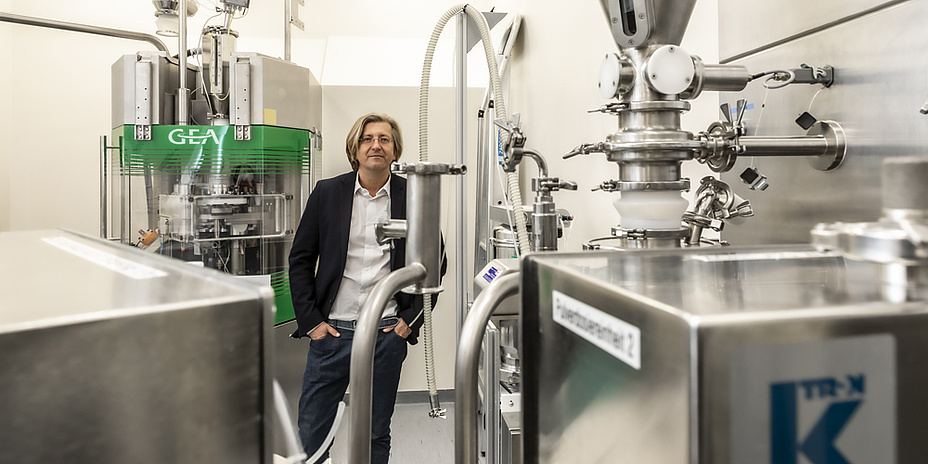
The facility is fully operational and is used for research on high-speed production methods for pharmaceutical products, as Johannes Khinast, head of the Institute of Process and Particle Engineering at TU Graz and Scientific Director and CEO of the Research Center for Pharmaceutical Engineering (RCPE), explains: “It takes anywhere from six months to a full year from formulation to finished tablets. We’re exploring ways to make this work much faster.” This is a charged issue at present because, although vaccines against the rampant coronavirus have already been approved, production takes a long time. “It’s pivotal that we focus on effective medicines at the same time as on highly effective vaccines, for those who can’t or don´t want to be vaccinated.” Work is carried out here in close cooperation with all the well-known pharmaceutical companies, all of which have an interest in rapid production: “No one has escaped us yet.”
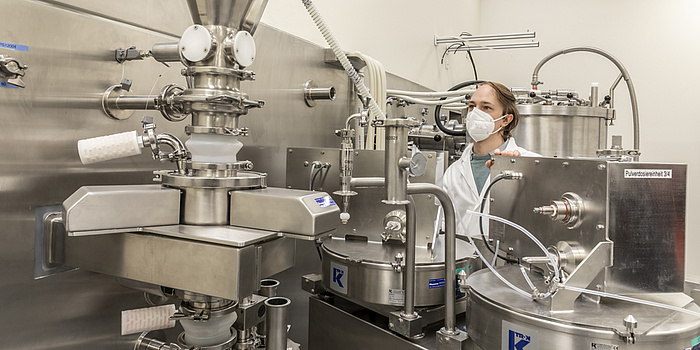
The path from the formulation to the finished tablet starts in the mixer (shown at the very back of the picture), which weighs and mixes the active ingredients precisely. © Lunghammer – TU Graz
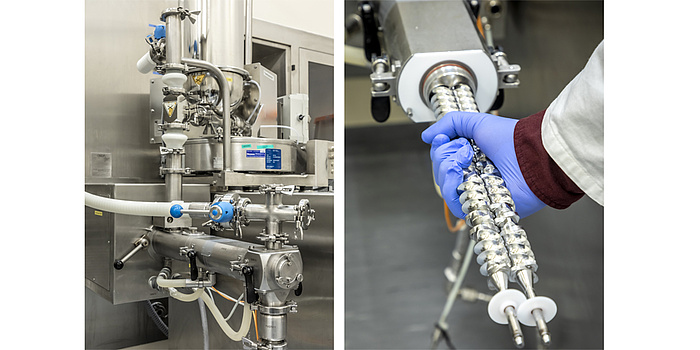
At the heart of the plant is the granulator, which adds water to the active ingredient mixture and processes it into coarse-grained granules. © Lunghammer – TU Graz
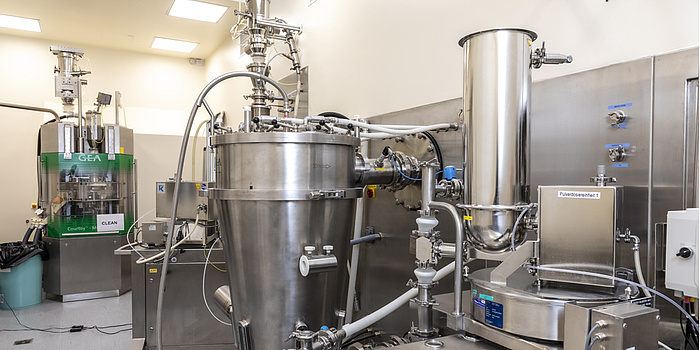
In the next step, the granules are dried again, mixed with auxiliaries and additives, and precisely weighed. © Lunghammer – TU Graz
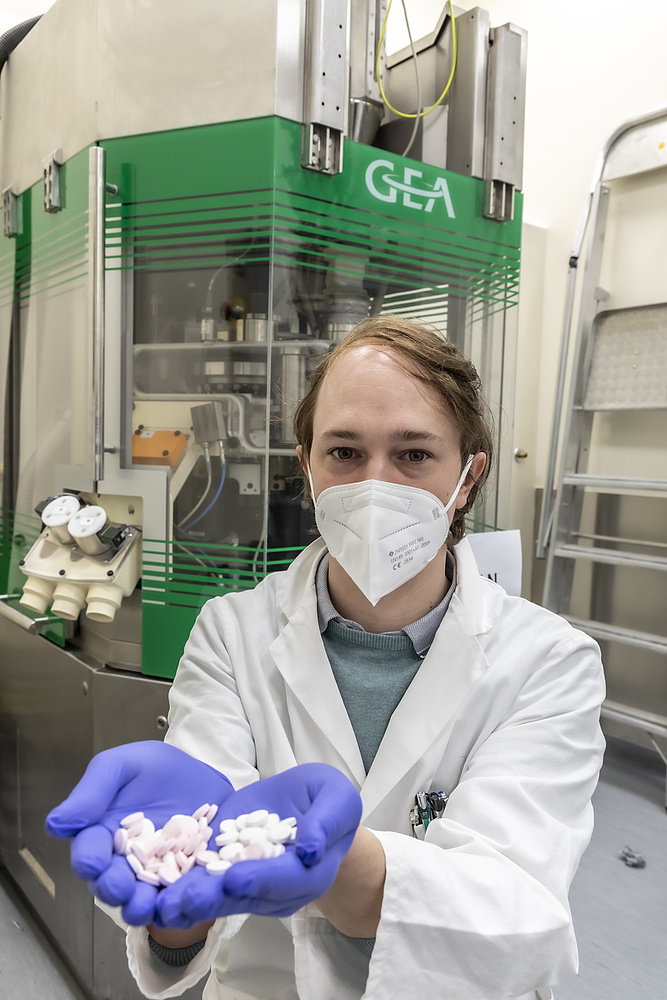
Finally, the tablets are pressed. The system automatically detects defectively pressed tablets and separates them. Respiratory protection must be worn while working in the pilot plant. “We can process substances up to hazard class III in the plant,” Khinast explains. In comparison, hazard class IV already includes highly reactive substances such as chemotherapeutics or hormones. © Lunghammer – TU Graz
This research area is anchored in the Field of Expertise “Mobility & Production”, one of five strategic foci of TU Graz.
You can find more research news on Planet research. Monthly updates from the world of science at Graz University of Technology are available via the research newsletter TU Graz research monthly.



